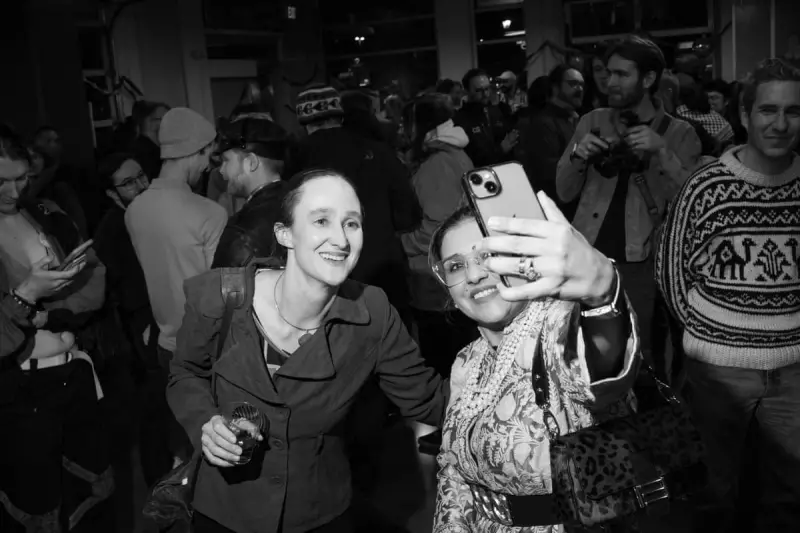
While much of America focused on election results from New York City, Virginia and New Jersey on 4th November, Seattle progressives experienced an entirely different political drama unfolding in their city. Katie Wilson, a longtime community organiser and progressive challenger in Seattle's mayoral race, found herself trailing by seven points in the initial ballot count.
From Underdog to Mayor-Elect
The early results told only part of the story. Because Washington state conducts elections almost entirely by mail, that first count represented less than a quarter of total votes. Over the following eight days, as progressive supporters watched with anticipation, Wilson's share steadily increased until Seattle officially declared her the next mayor.
"I am a community organiser, and I will not stop being a community organiser when I step into the mayor's office," Wilson declared after outgoing mayor Bruce Harrell conceded. "I want a city where everyone has the basics of a dignified life, including healthy food, access to healthcare and supportive communities."
Wilson's victory drew immediate comparisons to New York's mayor-elect Zohran Mamdani, another progressive who challenged establishment politics. Both candidates emerged from relative obscurity with strong grassroots campaigns that energised voters months before election day. They faced seasoned opponents with significant institutional backing - Harrell had served in Seattle city hall for 16 years, while Mamdani challenged former New York governor Andrew Cuomo.
The Organiser's Path to Power
Wilson's ascent becomes more remarkable when considering three key factors: Seattle hadn't re-elected a mayor to a second term in nearly two decades, most political institutions believed Harrell would break that pattern, and as recently as spring, few Seattle residents knew Wilson's name.
Her political foundation was built through the Transit Riders Union, a tiny grassroots organisation she co-founded in 2011. It began with a campaign to save King County metro bus lines threatened by recession-era austerity budgets. Wilson, who had spent years studying how to organise working-class power, viewed public transit as essential for working families.
The organisation's first meeting attracted only 30 people, but persistence and people power eventually saved the threatened bus routes. The Transit Riders Union gradually expanded its scope to include reducing fares for low-income families, making transit free for children under 18, renter protections, and raising the minimum wage throughout King County.
Jake Simpson, who later became Wilson's political consultant, first encountered her effectiveness when she approached him with a fully-written renters' protection ordinance during his first year on the SeaTac city council. "Her approach was amazing," Simpson recalled. "I think she knew that a lot of politicians don't know what the hell they're doing when it comes to policy work." That legislation is now law.
Building Trust Through Action
When Wilson announced her candidacy, organisations like Tech4Housing and House Our Neighbors provided early volunteers. The enthusiasm stemmed from trust built over years of consistent work.
Suresh Chanmugam, a Tech4Housing steering committee member and campaign volunteer, contrasted Wilson's approach with more charismatic politicians. "She has a 14-year track record of selflessly working to help make life better for our most marginalised neighbours," he explained.
Wilson herself reflected on this dynamic, noting she never had "positional authority" but instead built influence through collaboration. "The way that I've been able to do big things is by getting to a place where people want to work with me," she said. "The authority that I've built up over the years is based on goodwill and trust."
This trust-based approach enabled an unusually decentralised campaign structure. For most of the race, Wilson operated with just three staff members - all former labour organisers. Instead, she relied on an extensive network of dedicated volunteers that eventually grew to 2,000 people.
Between August and November, field director Xochitl Maykovich's team knocked on 50,000 doors. The campaign implemented an organiser training programme with neighbourhood captains responsible for recruiting volunteers and managing local outreach.
"The thing the Harrell campaign didn't have - and I think probably almost every other campaign in Seattle recently has not had - is this groundswell of volunteers who are willing to put a ton of their time and energy into this campaign, unpaid," said campaign manager Alex Gallo-Brown.
Overcoming Financial Disadvantages
Harrell's campaign and supporting PACs outraised Wilson two-to-one, backed by major businesses, developers and wealthy individuals. In October alone, they spent £400,000 on television attack ads attempting to frame Wilson as an inexperienced radical who would damage the city.
This spending narrowed the gap significantly. October polling showed Wilson's lead shrinking from nine points to a statistical tie. The shift likely came from previously undecided voters influenced by Harrell's advertising blitz.
Wilson ultimately won the tightest mayoral race in Seattle's recent history, securing just over 50% of the vote. To local political observers, this narrow margin doesn't indicate weak support for progressive policies but rather demonstrates that dedicated organising can overcome significant financial disadvantages.
"I think people want to see themselves reflected in who's in office," Simpson observed. "Experience is relevant if you're interested in getting the same kind of outcomes that we've seen for the last 20 years, but when people are tired of those outcomes, then they want someone that's a lot more like them."
Wilson's victory represents more than just a political upset - it offers the left a new model for how progressives can achieve power for working people through sustained community engagement rather than charismatic leadership or financial advantage.





